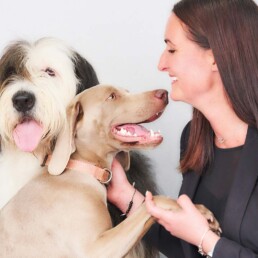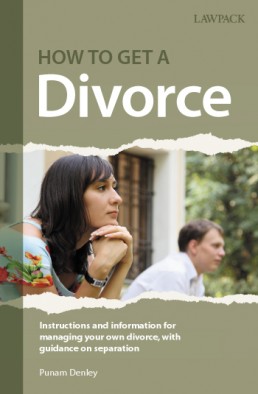Pet Custody
At Blanchards Law, we are all animal lovers so we understand how heart-breaking losing a beloved pet can be. We regularly come across pet custody disputes when relationships break down. These are usually about a family dog or cat, but sometimes it involves more exotic animals such as tortoises!
Can we help you? Please call us on 0333 344 6302 or contact us through our enquiry form.
“I would like to thank the team at Blanchards for securing the swift return of my dog Remy. They were professional and kept me in the loop, and couldn’t have done anything more to help me in my matter. Also thank you to Claudia for her investigative work to retrieve vital information to my case, writing a letter of claim and communicating between both parties.”
– Wendy Ford
Who gets the dog?
UK law treats pets in the same way as inanimate objects such as cars or other personal items. What this means is pets, eg a dog, is regarded within the UK legal system as a ‘chattel’, meaning they are viewed as an item that is owned a bit like a car or an item of furniture.
However, in many relationships, both parties and also their children feel an incredible closeness and love for the family dog. This can result in drawn out pet custody battles over who gets to keep them.
At Blanchards Law, we fully appreciate that to its owner a dog is more likely to be regarded as a much-loved member of the family. However, it is important not to assume that this is how the court will view it. During a dog ownership dispute, a Court will determine who the owner is. The Court has powers to make orders, such as an order for the return of the dog. They can also order damages for wrongful retention of the dog.
How does the law treat pets in divorce or separation in the UK?
If you are getting divorced from your partner, the Court may be able to decide who will get to keep the family pet. For example, if you have a dog, the court may order transfer of ownership or pedigree paper the same way they would for land or any other property.
The court may also make provision for the costs of upkeep of the animal when calculating income needs of the party keeping the pet. This could include things such as kennel space and gardens for dogs, vet bills or even land for horses. This will be considered as part of the overall financial award in financial remedy proceedings.
UK law does not make any provision for how a court will decide who gets to keep the family pet. However the main factor which may contribute to their decision will be who devoted the most time to caring for the pet.
Some judges are reluctant to make an order regarding pets, and will not spend a lot of court time hearing evidence. The judicial system views financial arrangements or child arrangements are much more pressing matters.
Pet Custody in Small Claims Court
It is possible to challenge pet custody in the Small Claims Court. If you are not married, a court could make the decision on strictly legal principles – the pet belongs to the person who paid for it. If you paid for the dog, you can evidence this to the court through receipts and invoices or any Kennel Club registration you may have.
In a situation where a Small Claims Court is involved, the District Judge has the power to determine who is the dog’s sole owner and they then may direct that this person has sole possession. However, a Court is not bound to require that the owner have possession of a dog as this is a discretionary remedy.
If the Court rules that the dog is jointly owned, the Court may order that:-
- possession of the dog be shared
- one party has the dog
- that the disputing parties sell the dog and share the proceeds.
What determines ownership of a Dog?
There is no one single piece of evidence that conclusively proves who owns a dog. A Small Claims Court will consider a variety of information when determining pet ownership and a District Judge is entitled to give whatever weight to this evidence as they deem fit. These include written and oral evidence on:
- Who bought the dog (including whose name is on the contract made with the rescue centre or breeder)
- Whose name is registered with the Kennel Club
- Who is registered on the microchip database
- Whose name is recorded at the vet’s practice
- Who is registered on the insurance certificate
- Who usually takes care of the dog
- Who pays the day to day expenses for the dog
Pets in Prenuptial Agreements
The easiest way to avoid any difficulty or contention is to pre-empt the problem. It is possible to enter into a co-habitation agreement (if you do not intend to marry) or a pre-nuptial agreement (if you are to marry). This agreement can set out any arrangements for care of the family pet, including who they belong to and who they will live with should the relationship come to an end.
Can we help you? Please call us on 0333 344 6302 or contact us through our enquiry form. Speak to a member of the team today.
"*" indicates required fields
Make an enquiry here
During the your call with a member of the Pet Custody team we will listen to your current situation and if we can help you, will outline the next steps and the charges involved. You can then decide if you would like us to instruct us.
Click the button below to go to our enquiry form or call us today on 0333 344 6302.
This is what our clients say about us
Punam is an excellent family lawyer. She gives good sensible advice on divorce and child matters at what is often a particularly distressing time. I would not hesitate to recommend her for the most complex matters; her legal knowledge combined with her ability to see the bigger picture are invaluable.
Rob Alloway
I instructed Punam to make a financial relief application under Part III Matrimonial and Family Proceedings Act 1984. Punam is very professional, knowledgeable and kind. I would not hesitate to instruct her again on any legal matter. Thank you for all your support.
Aline Michele
Divorce is a very harrowing, stressful and personal event Punam was warm and approachable but super efficient and succinct with it. Genuinely staggered at how smooth a process she made it. I wholeheartedly recommend Punam after a very positive experience myself.
Sam Cowan
Punam is an experienced and tenacious lawyer offering warm, compassionate and intelligent advice on a wide variety of family matters. She has acted for us for over a decade both in the city and in her own practice on divorce proceedings and complex family and child matters. We would not hesitate to recommend her.
Sue Evans
Blanchards supported my difficult and complex legal proceedings. They navigated every detail with high competence and provided confidence and reassurance at every step. Was most grateful for the human touch of doing the right thing at all times, and for their comforting professionalism even when times were very tough. Fully recommend and thank you.
Steve James
Welcome to Blanchards Law
Request our FREE Divorce Guide
Free Guide to Divorce & Contact & Custody Issues matters:
- Simple 8 Step Guide to your getting your Divorce from Start to Finish
- Advice on how to get your Custody/Residence & Contact Order
- Big mistakes people make in Custody & Contact disputes & how to avoid them
- Much more!
Punam Denley has written a book about divorce, financial matters and children issues
Have a read or buy it here
This is what our clients say about us
My life everything it is now, because of Punam! She is an incredible solicitor, everything I have ever approached her for was resolved successfully in my favour. I am so grateful! I found her online and after our first phone call I felt she understood me and my personal circumstance. I recommend Blanchard law wholeheartedly.
Rachel Ritfeld
Make an enquiry here
During the initial enquiry call, we will listen to your current situation and if we can help you, will outline the next steps and the charges involved. You can then decide if you would like us to help you.
Click the button below to go to our enquiry form or call us today on 0333 344 6302.
Stories & case studies to help you
Please read our blogs on our pet custody work and practice. Like you, many client have come to us because the blogs are informative and designed to help you understand what you can do to resolve your situation.
When does Complete Confidentiality & Privacy apply to Family Law Hearings? An Analysis of the (private) Financial Dispute Resolution hearing
If you are involved in family law proceedings, you have an expectation that the process is private and that the documents that you disclose within it will be kept confidential. This blog does not…
The Pension Sharing Order – A Cautionary Tale
The recent case of AP v TP (Pension Enforcement) [2025] demonstrates the need to ensure that even after the court have approved a financial consent order concerning pensions after divorce and have…
When Family Feuds Go Nuclear: Even a Beckham Has Legal Options
When family drama goes nuclear, even a Beckham might need the law on his side. If Brooklyn Beckham were in England and genuinely felt threatened, harassed, or controlled, he’d have more options than…
Divorce & Separation,Latest News
This Valentine’s Day, Protect More Than Your Heart: Common Law Marriage Myths You Shouldn’t Swipe Right On
Pop culture loves to play fast and loose with the law. Think about the iconic Legally Blonde scene, where Elle Woods invokes the idea of a ‘common law marriage’ to claim rights over a pet, with…
Relationship Break Down: The Emotional Impact on Parents and Children
The end of a relationship can bring intense emotional upheaval for everyone involved. This effect is not limited to the person who feels left behind, it can be just as profound for the person who…
FDR vs pFDR Hearings: Understanding the Differences and Benefits
What is an FDR hearing? A Financial Dispute Resolution (FDR) hearing is typically the second stage of the court’s financial remedy process. Its primary purpose is to create a meaningful opportunity…
Parental Alienation
Many parents will feel frustrated at times by their estranged partner. This might be caused by the other parent telling unpleasant stories about you, complaining about your perceived faults or…
Mediation & Collaborative Law,Latest News
How Parenting Plans Created in Mediation Actually Work in Real Life
When parents separate, one of the biggest worries is often the same: “But how will this actually work day to day for the children?” Parenting plans created in Mediation aren’t about rigid rules. In…
Mediation & Collaborative Law,Latest News
I’m Nervous About Mediation
It is natural to feel nervous about seeing your former partner in a joint mediation session, whether it is online or face to face. If there has been an abusive relationship, including coercive…
Specific Issue Order (SIO)
When separated parents or guardians cannot agree on a key decision about a child’s upbringing, the UK family courts offer a focused solution: the Specific Issue Order (SIO). What Is a Specific Issue…
Mediation & Collaborative Law,Latest News
Busting the Myths About Child Inclusive Mediation
Mediation can be very helpful in looking at what the arrangements for the children are following a divorce or permanent separation, so that the children spend significant amounts of time with each…
Children,Divorce & Separation,Latest News
Why Separated Parents Should Plan Christmas Parenting Arrangements Early
Don’t wait until the school holidays begin to work out Christmas child arrangements. As Christmas lights begin to appear in shops and on our streets, many separated parents find their minds turning…
Contact us on 0333 344 6302 for a no-obligation call






